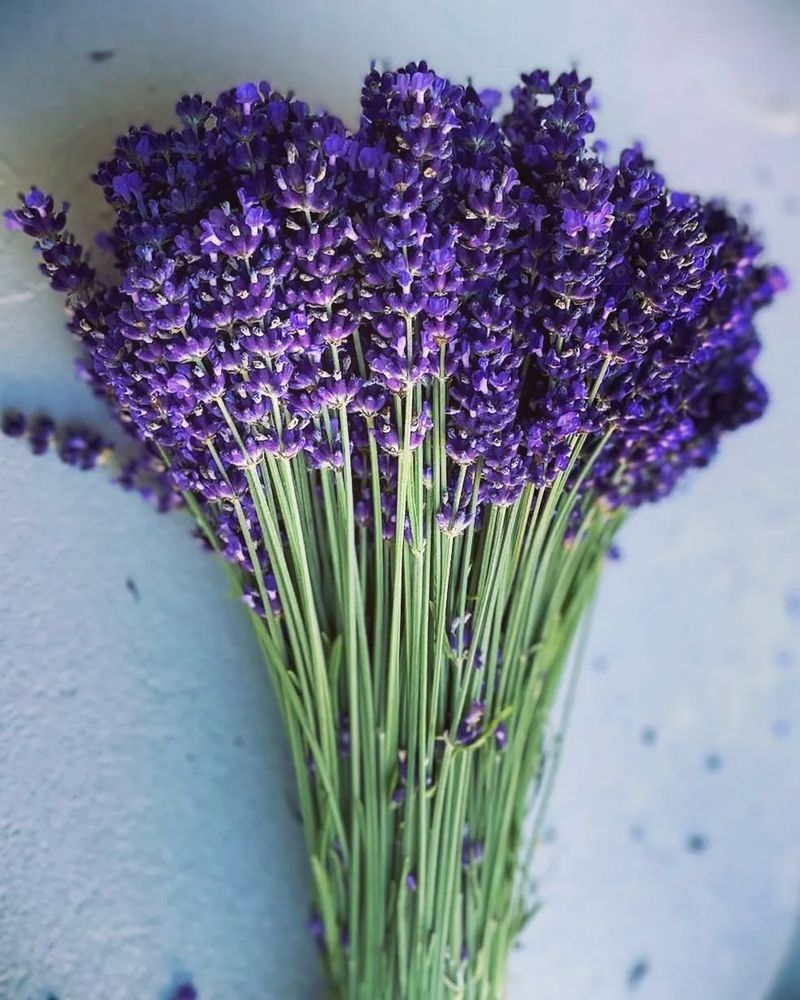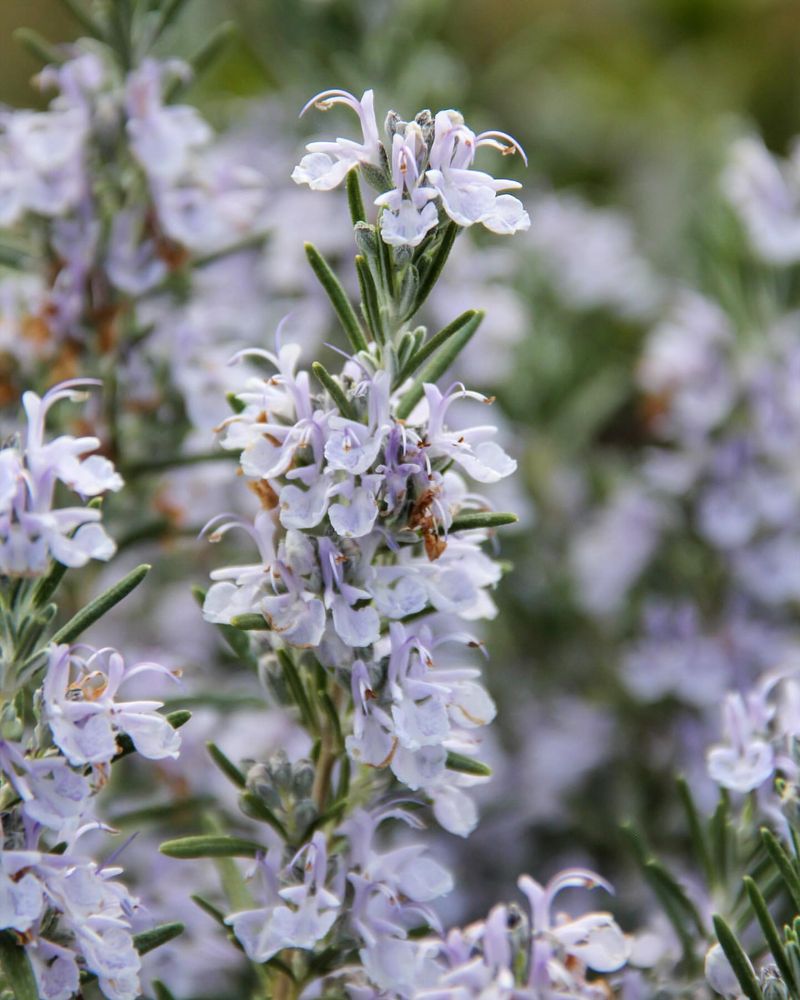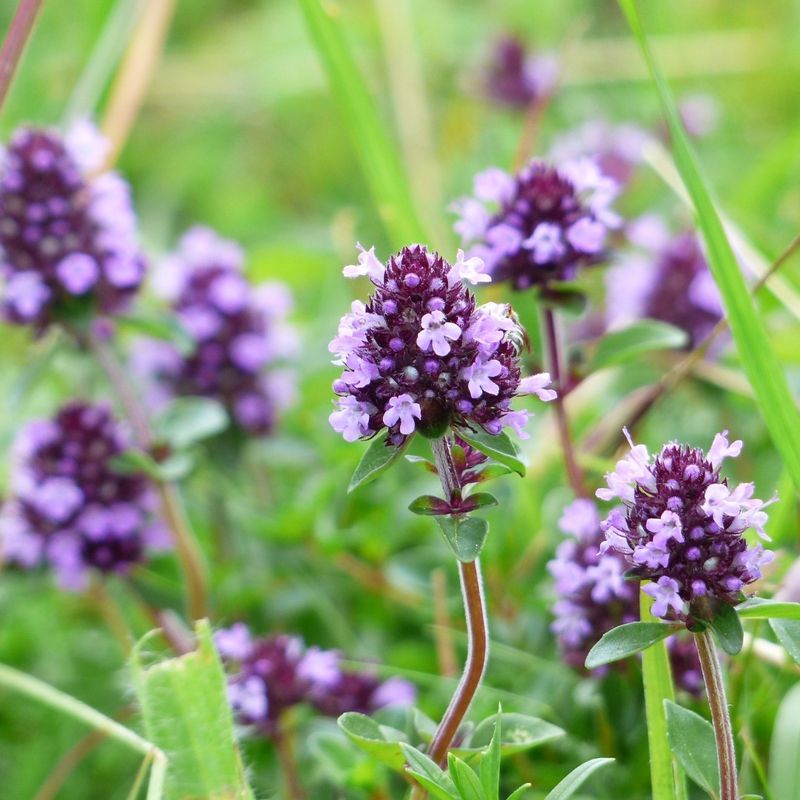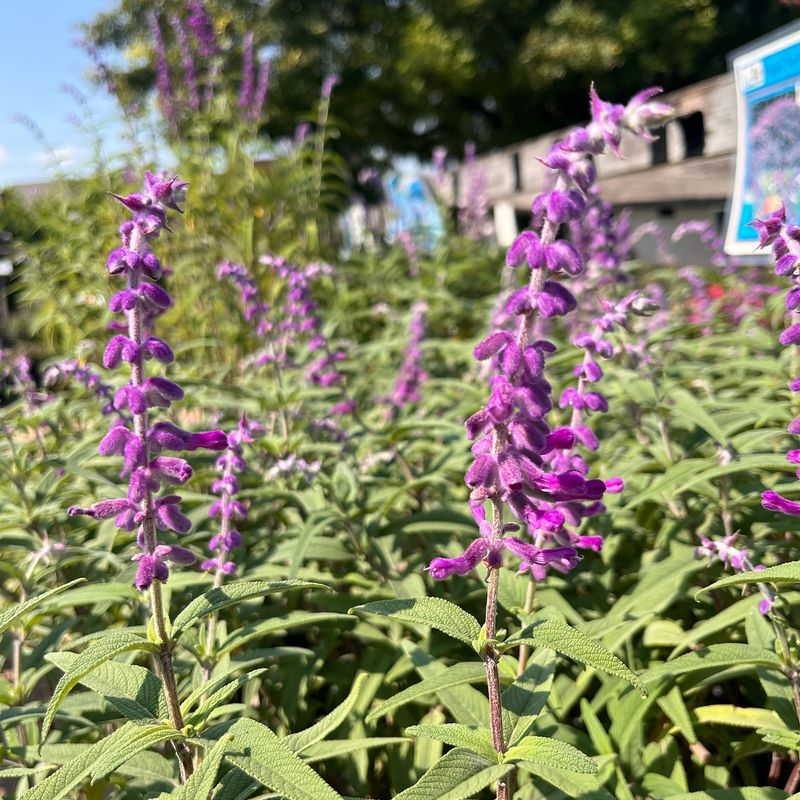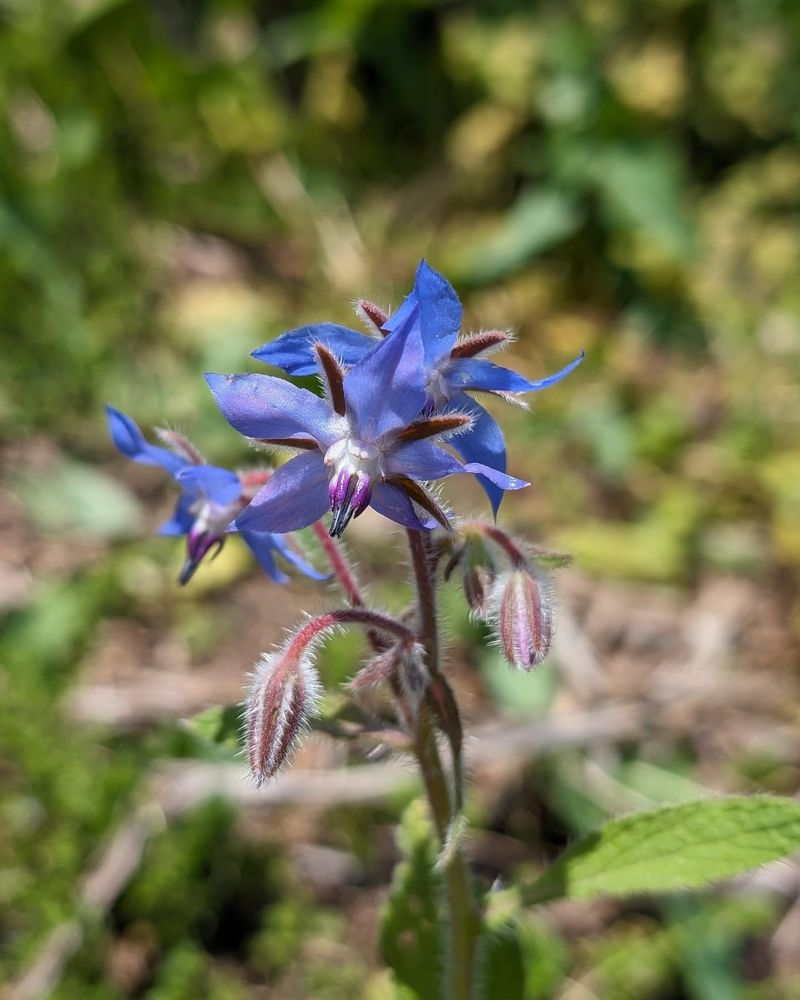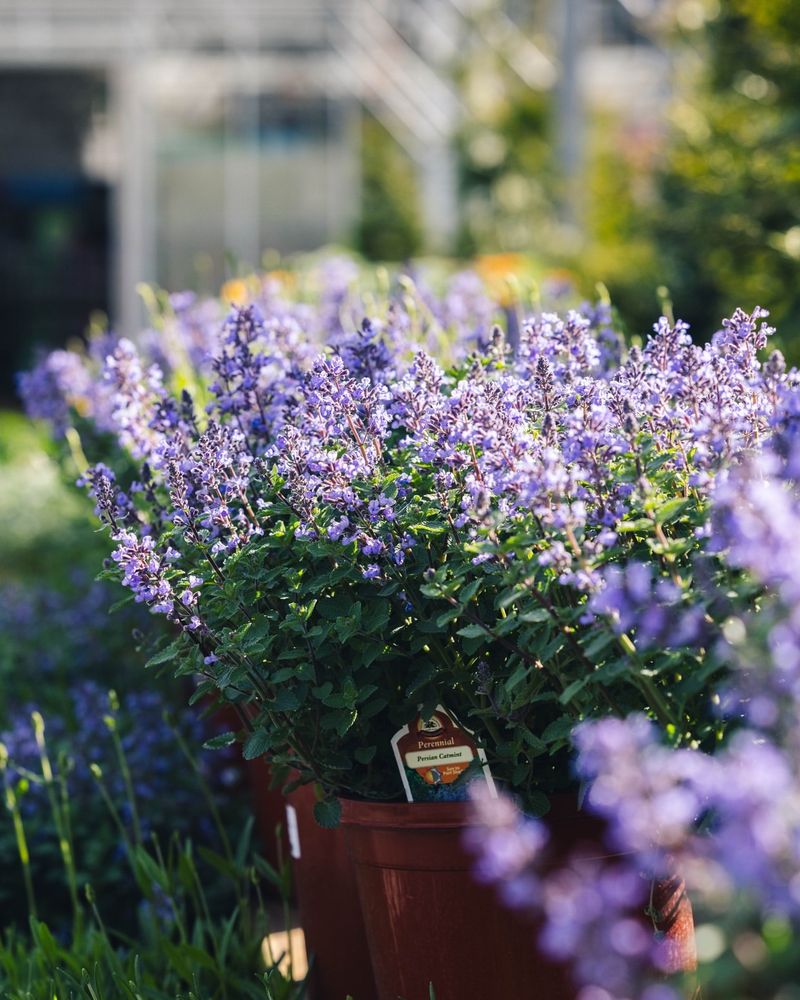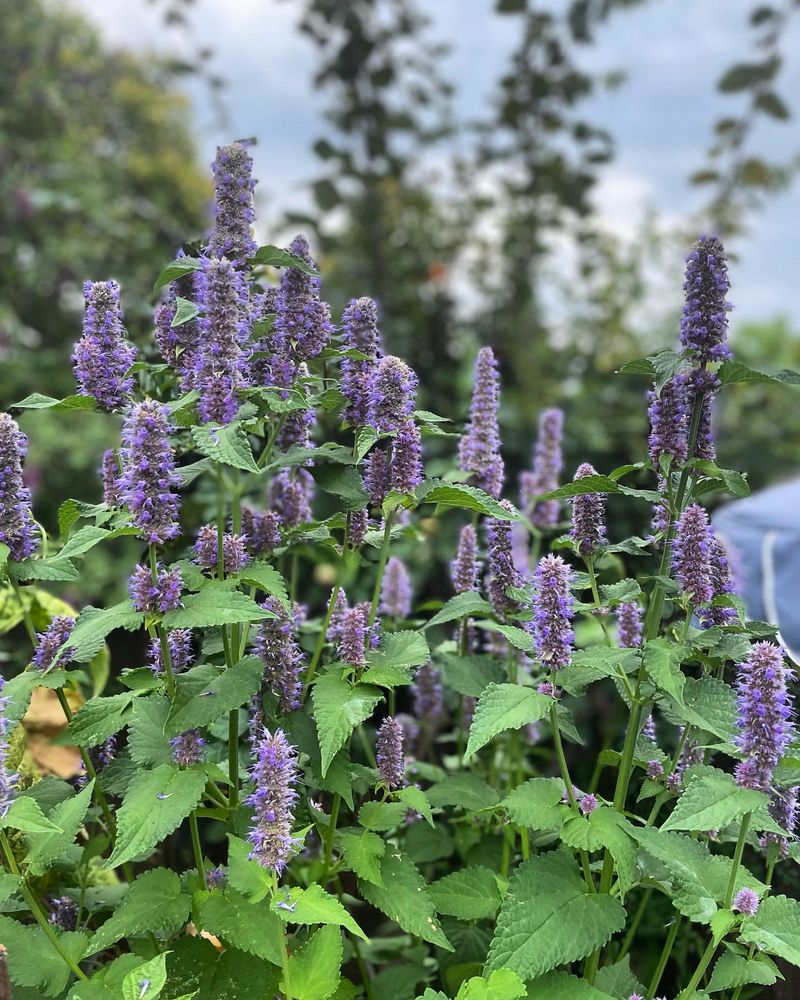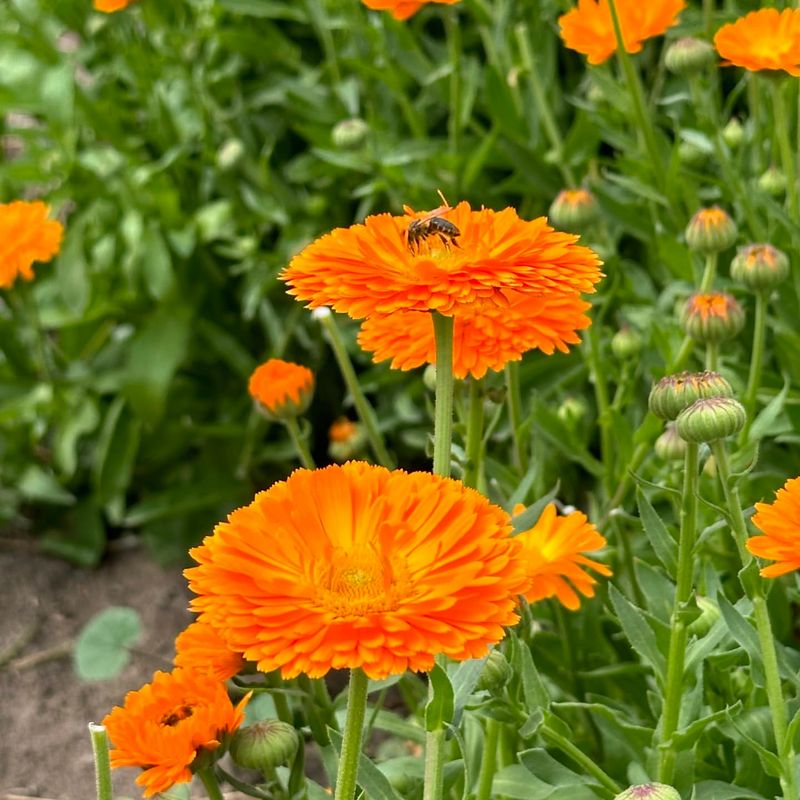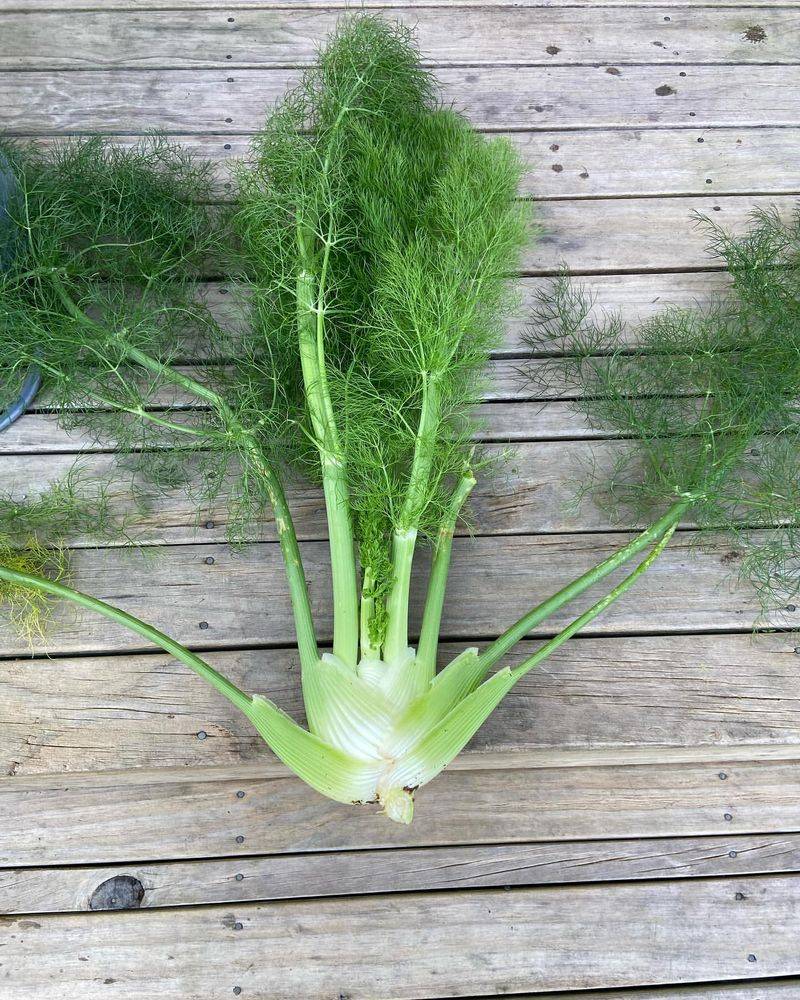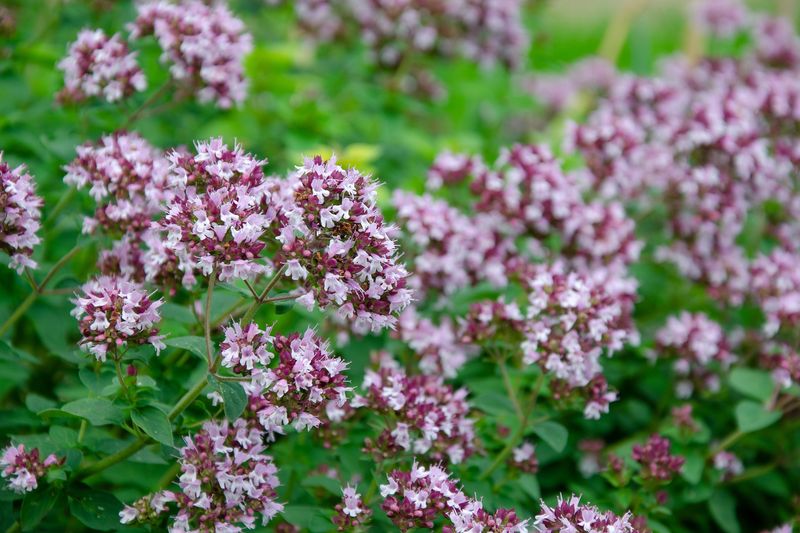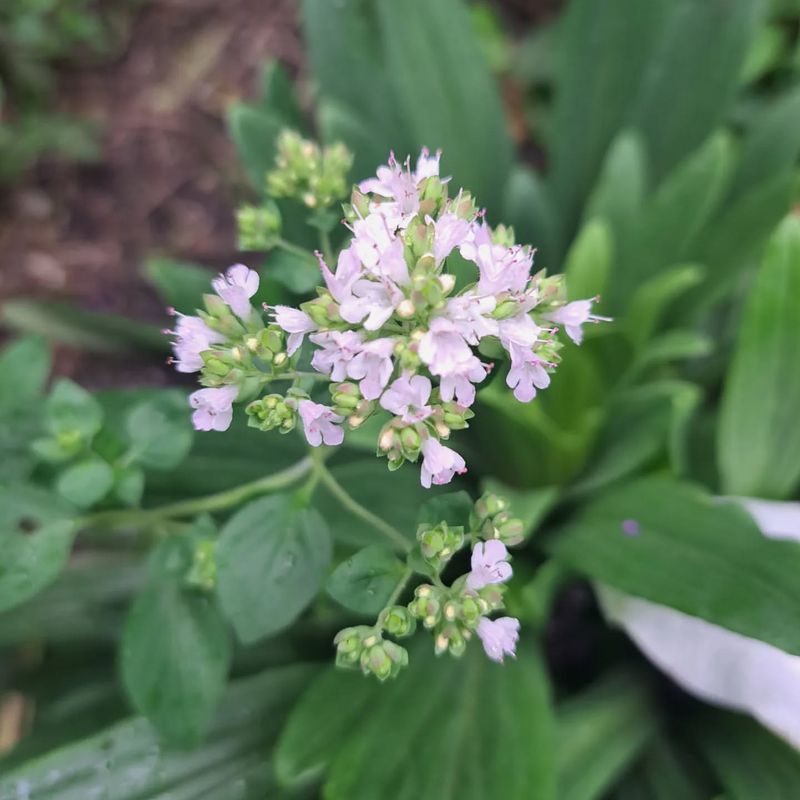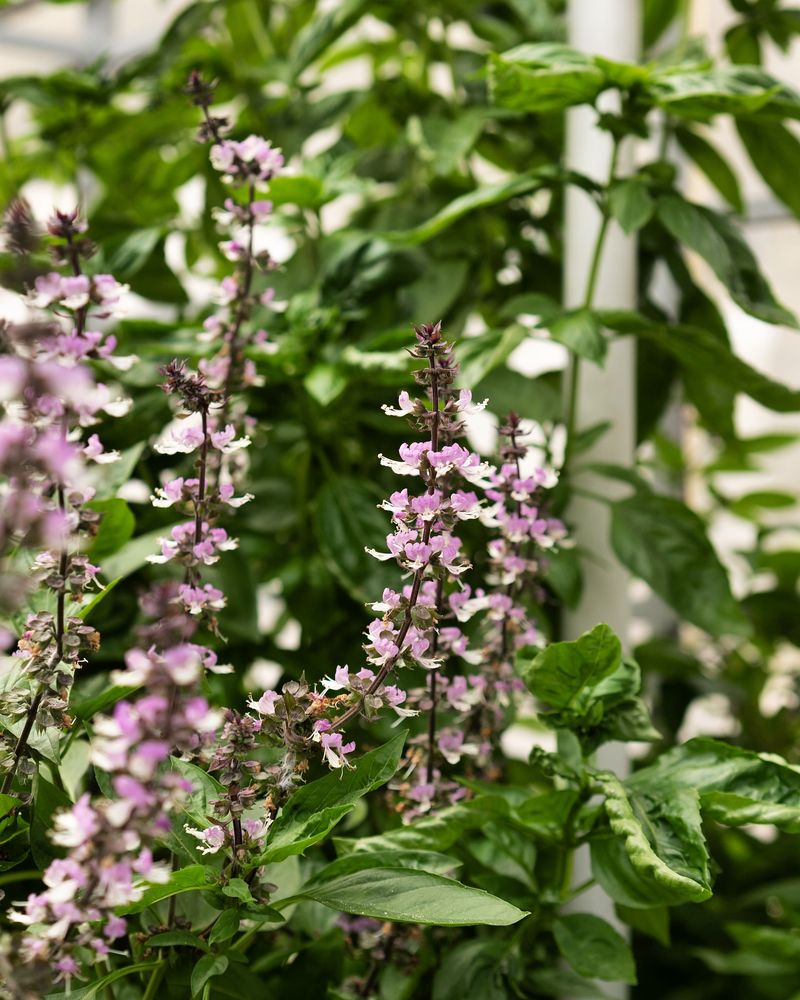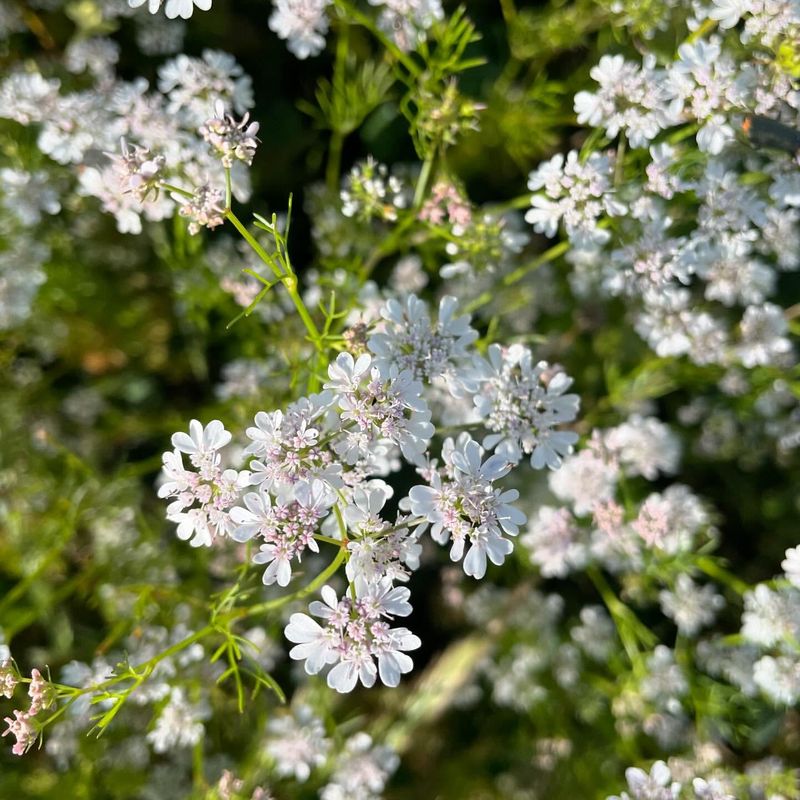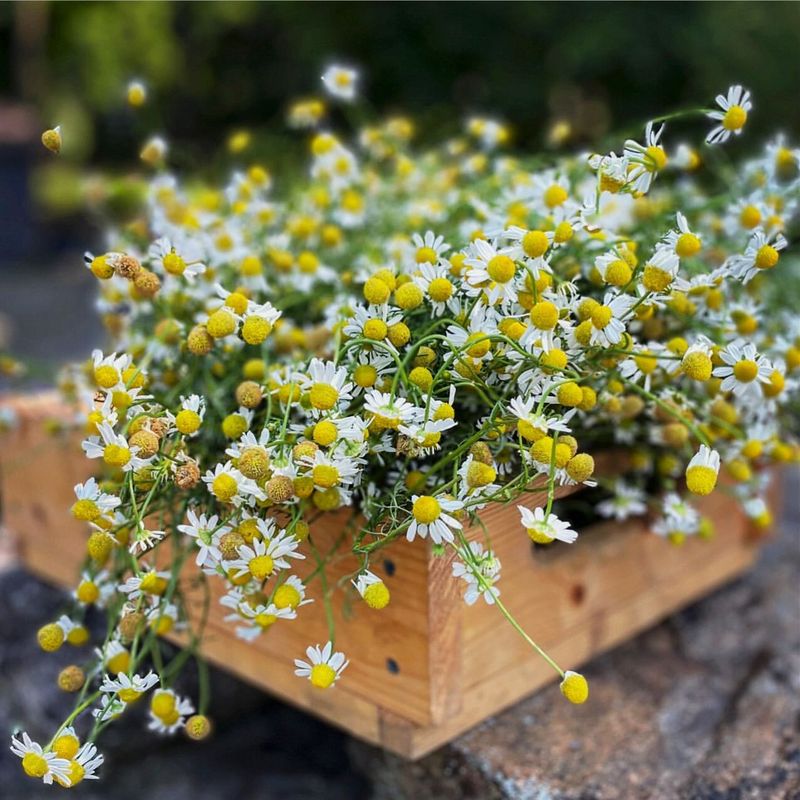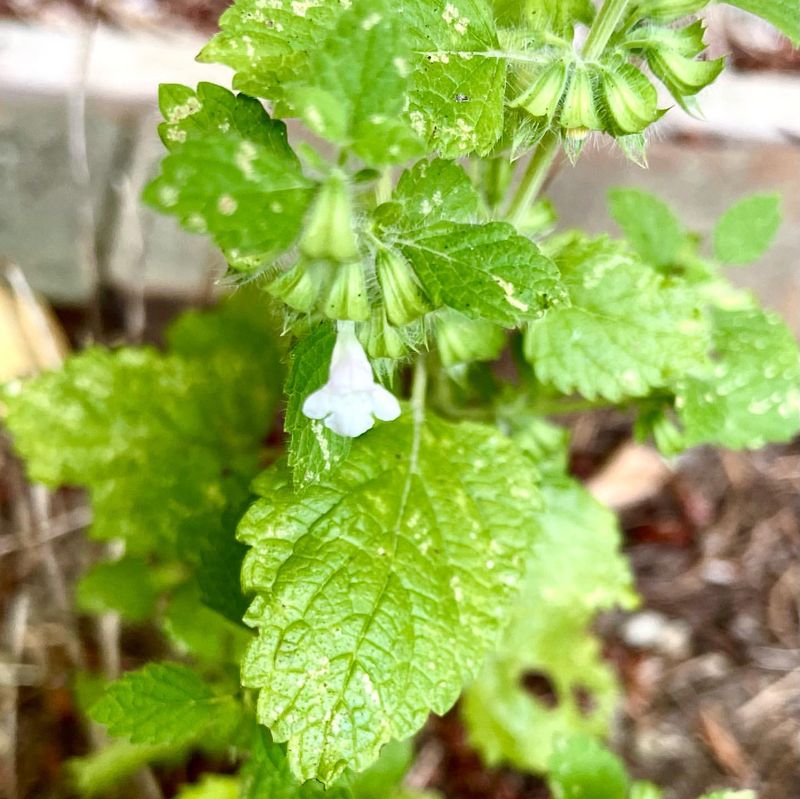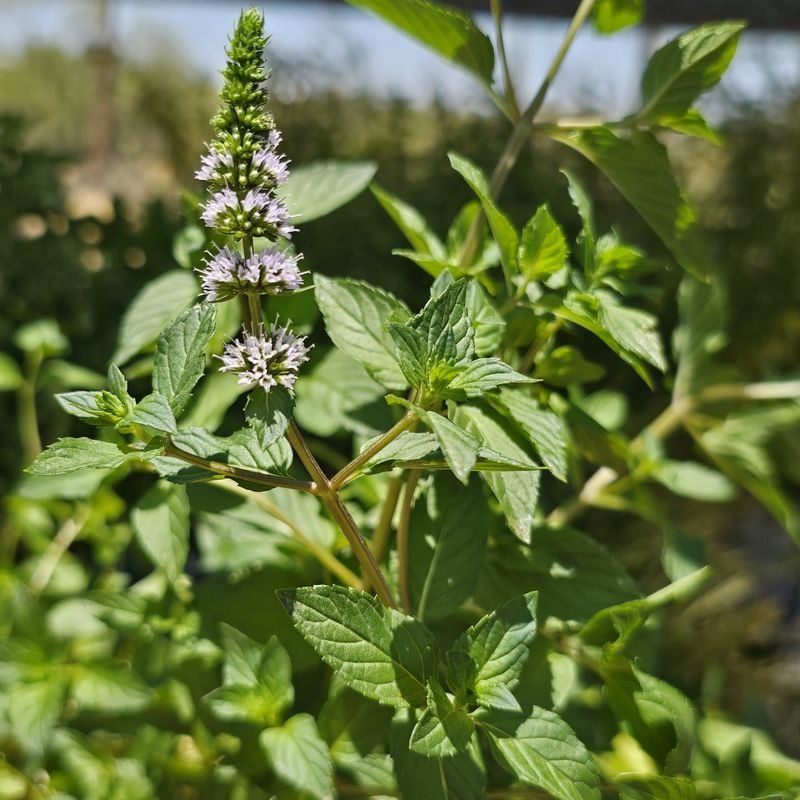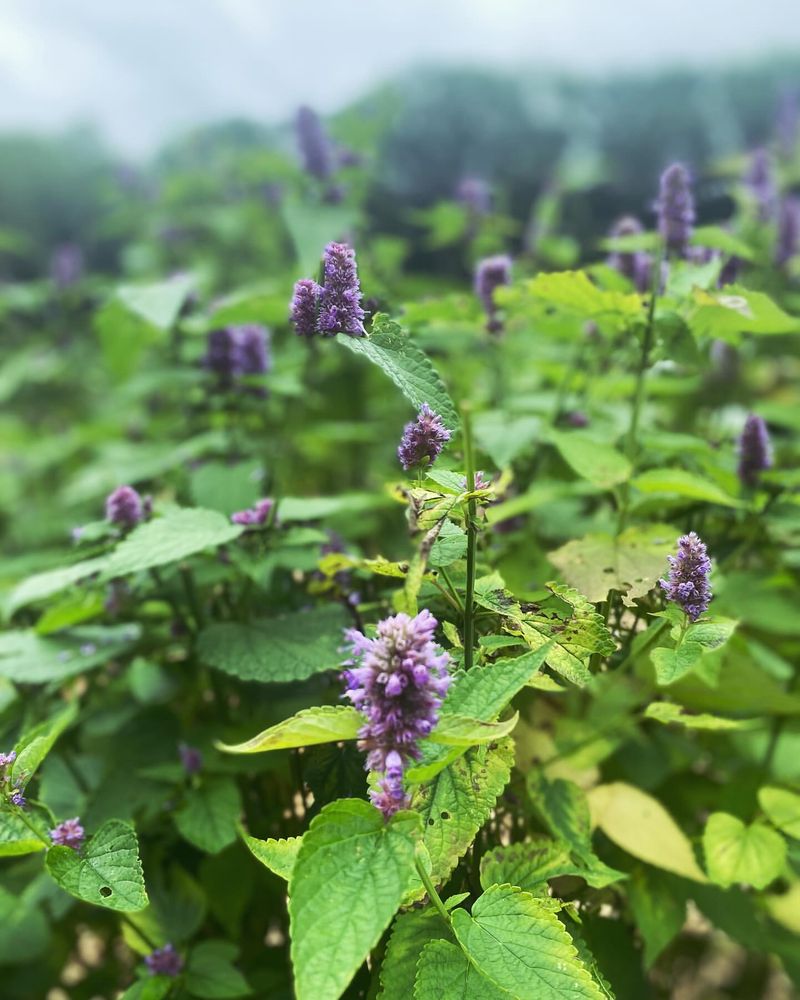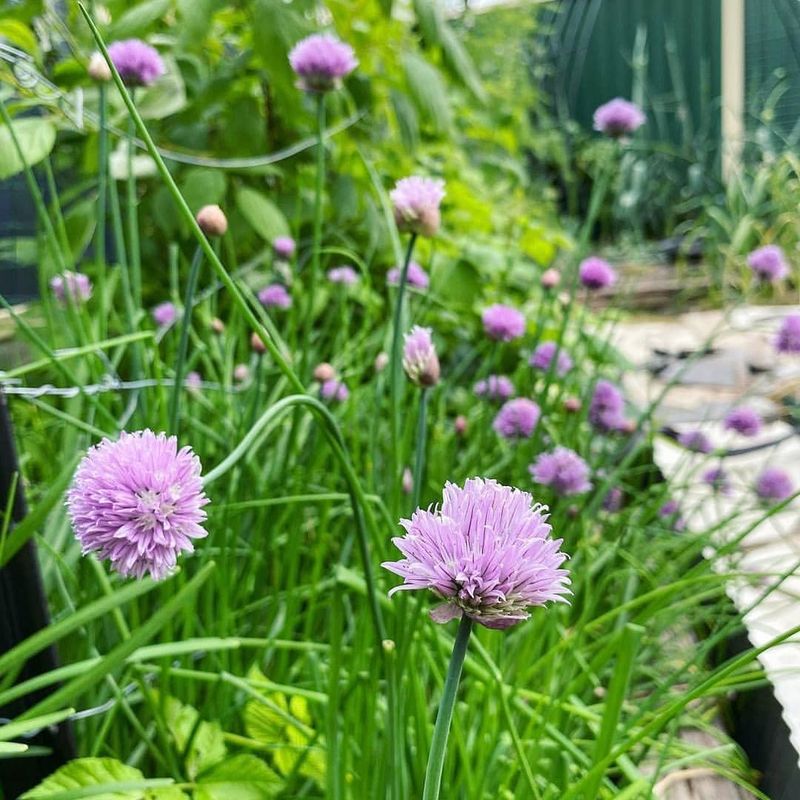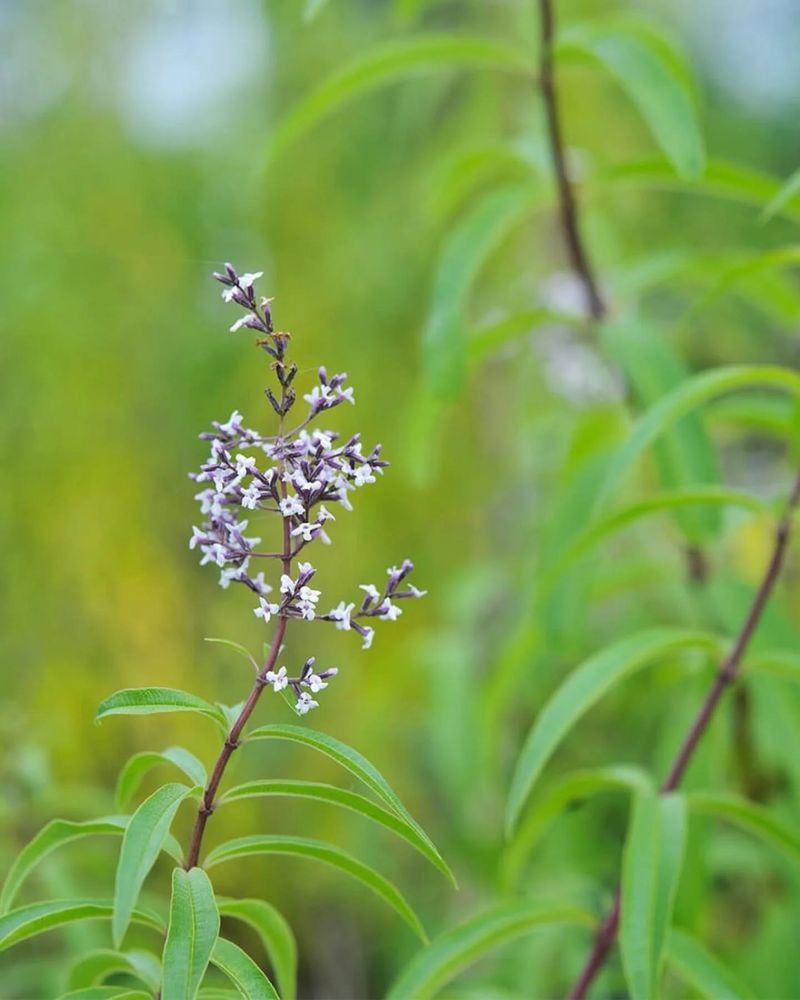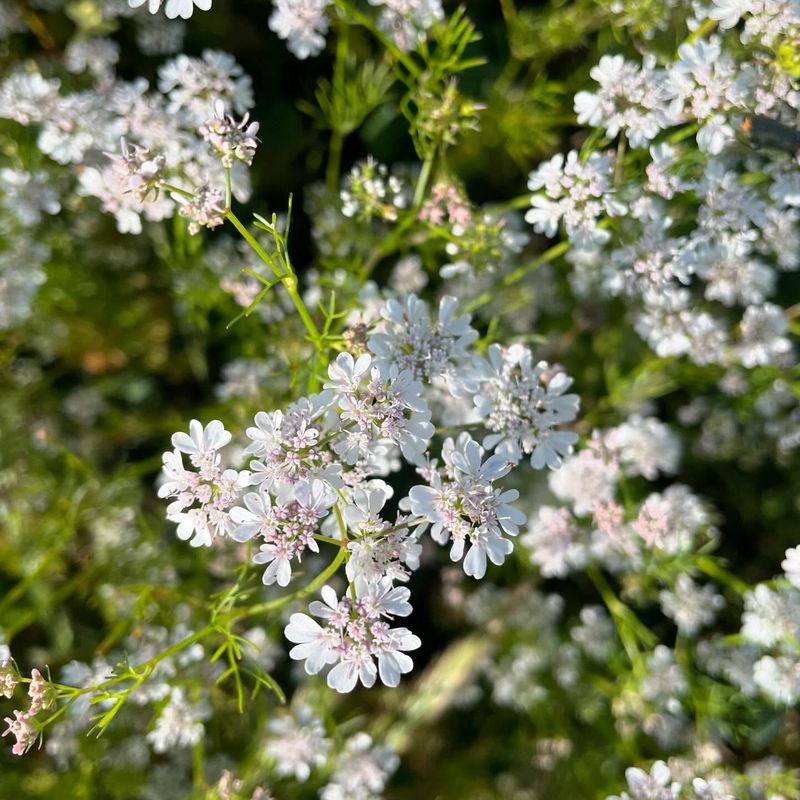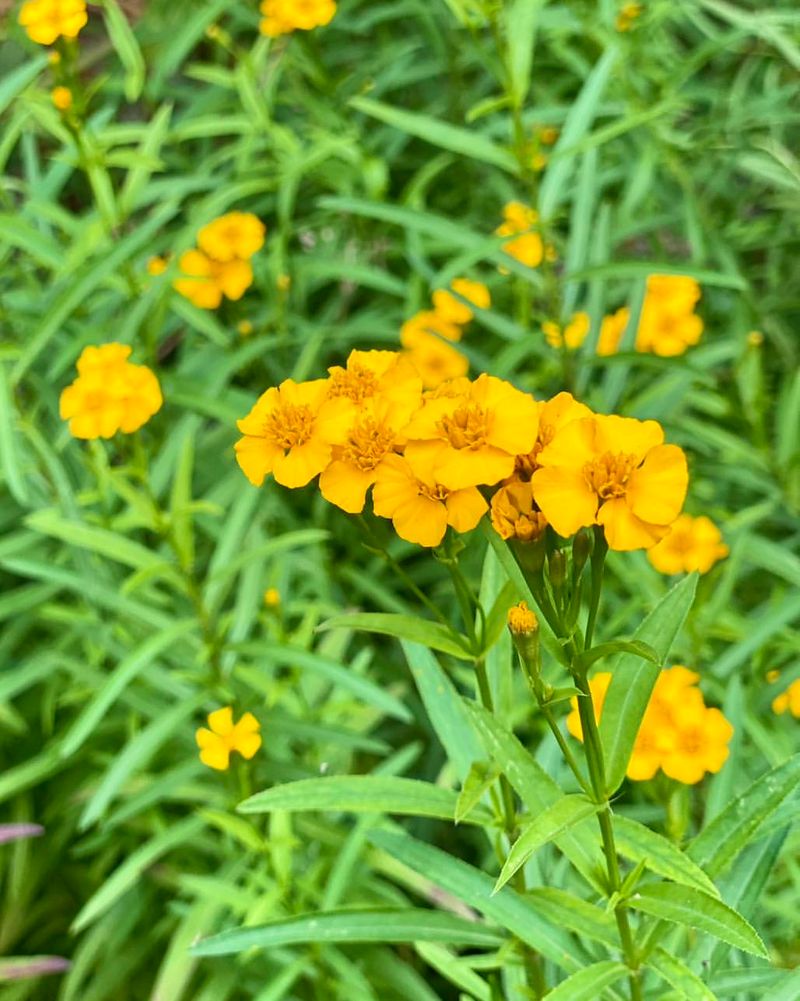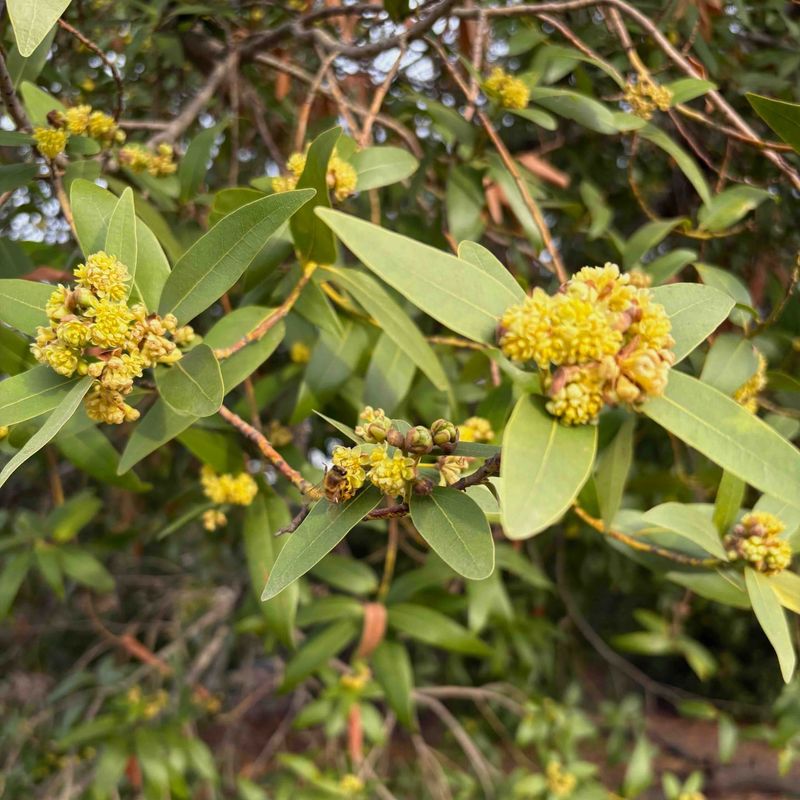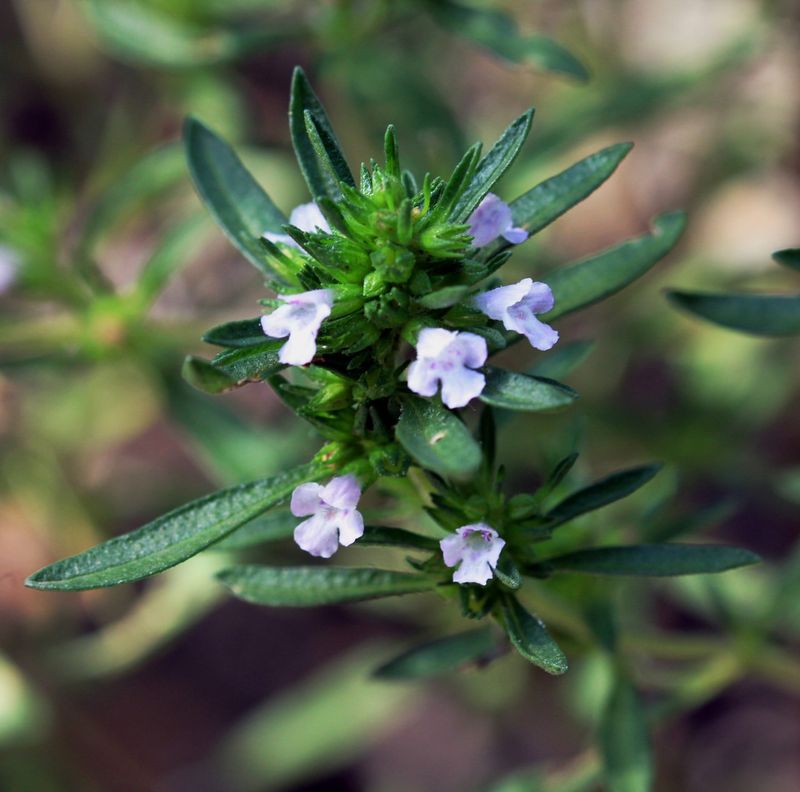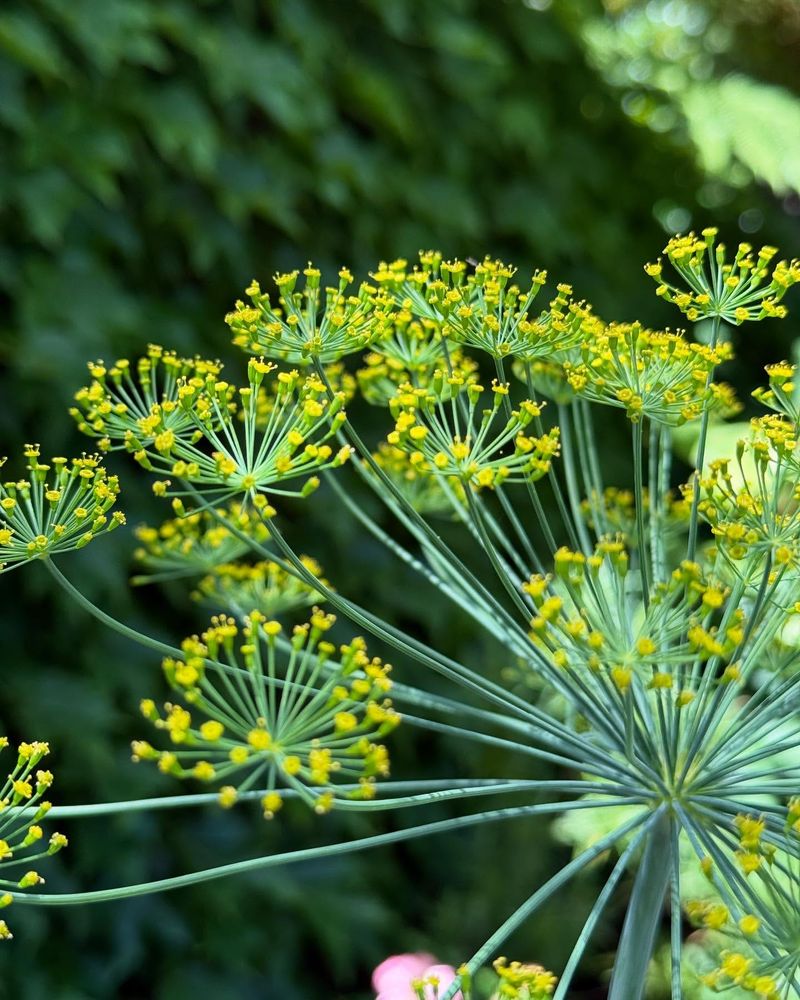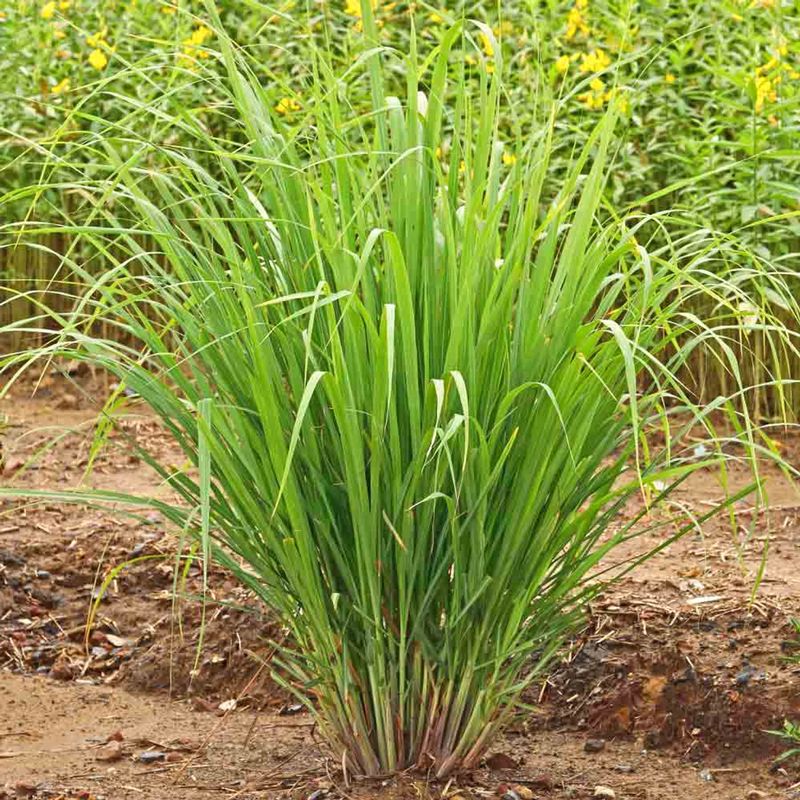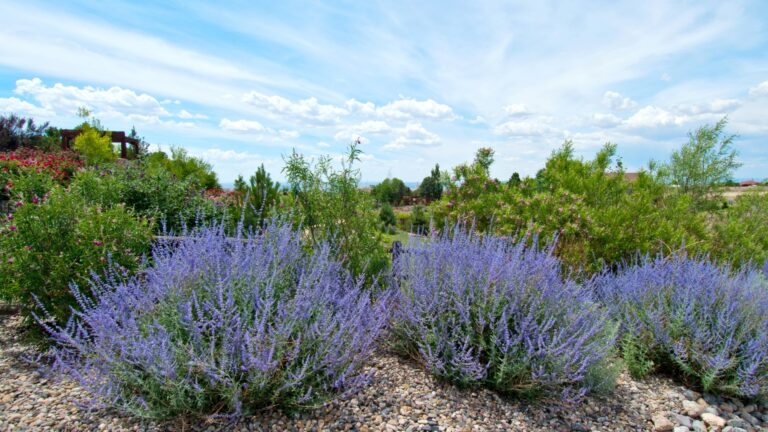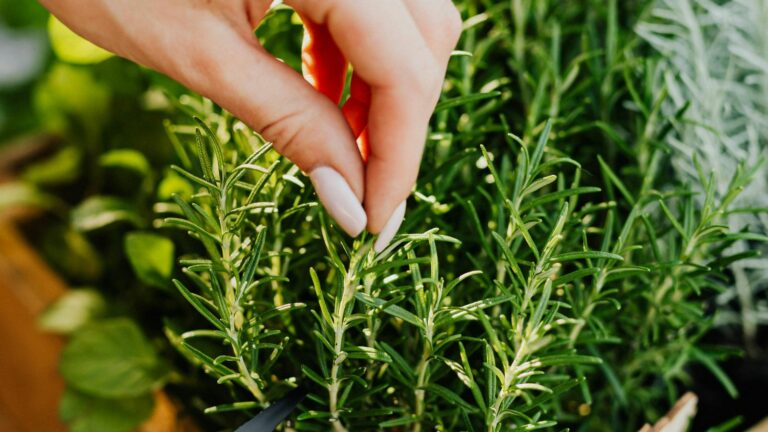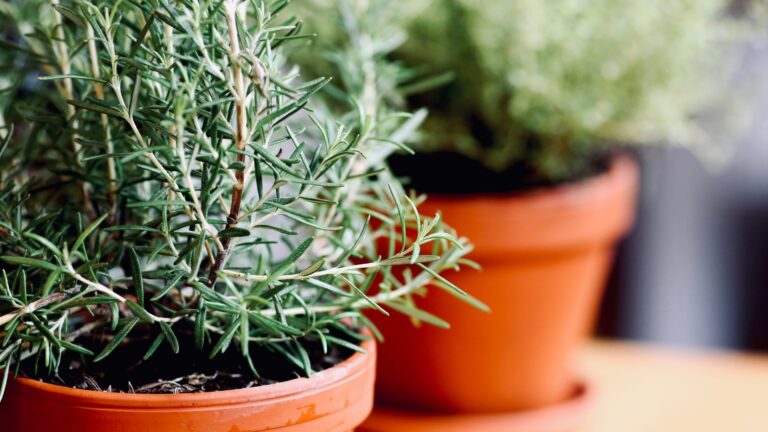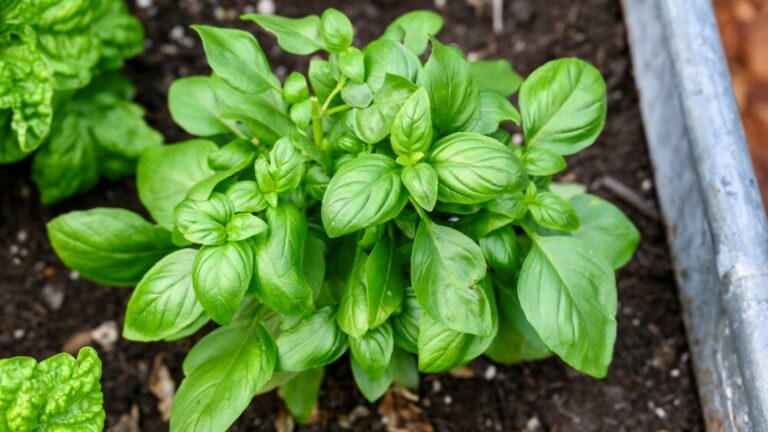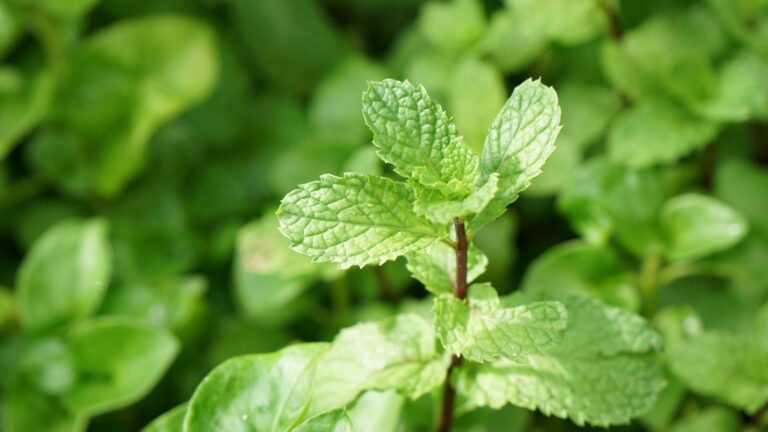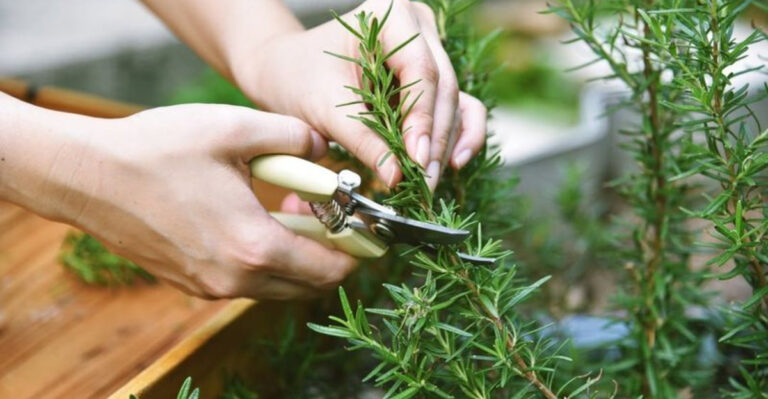25 Flowering Herbs That Are Great For Bees And Pollinators
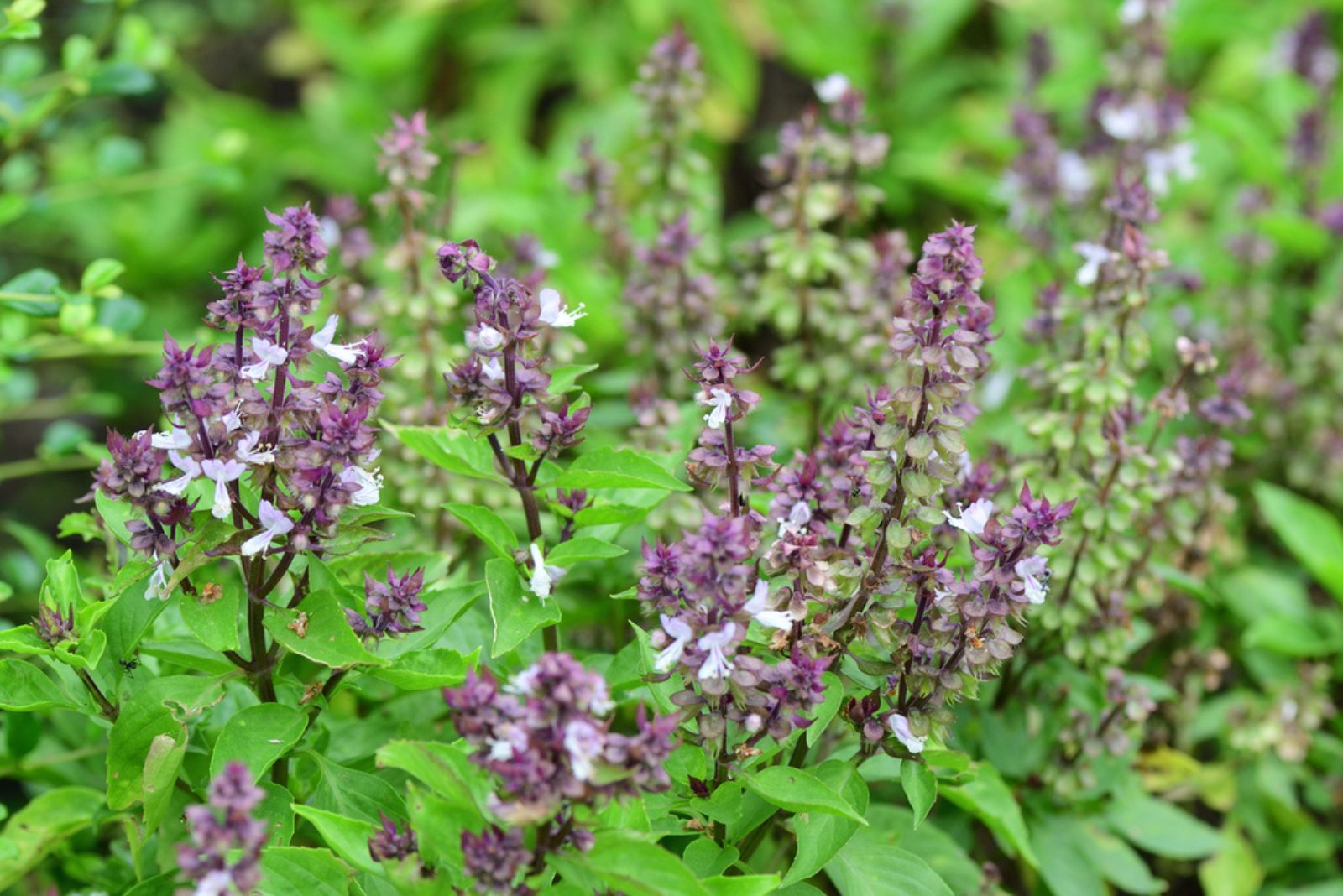
Flowering herbs are not only a vibrant addition to any garden but also serve as a crucial resource for bees and other pollinators. These herbs provide essential nectar and pollen, supporting healthy ecosystems.
Whether you’re a seasoned gardener or just starting, incorporating these herbs can create a thriving environment for pollinators.
1. Lavender
Known for its aromatic fragrance, this herb is a magnet for bees. The vibrant purple hues and rich nectar make it a favorite among pollinators. Planting these in your garden ensures a steady stream of buzzing visitors.
Lavender not only attracts pollinators but is also a hardy plant that can thrive in various climates. Its resilience and low maintenance make it perfect for amateur gardeners.
In addition to its pollinator-friendly attributes, lavender can be used in culinary dishes and homemade crafts, adding versatility to its list of benefits.
2. Rosemary
This herb is an excellent choice for those seeking a pollinator-friendly garden. It blooms beautiful blue flowers that provide ample nectar. Besides its pollinator appeal, rosemary is a versatile culinary herb.
It thrives in sunny spots and requires little water, making it ideal for both seasoned and novice gardeners. Its evergreen nature ensures that bees have access to resources even in colder months.
With its dual role as a culinary and pollinator plant, rosemary offers both ecological and practical benefits.
3. Thyme
A small yet mighty herb, thyme’s tiny flowers are a favorite among bees. Its low-growing nature makes it a perfect ground cover, adding beauty and functionality.
Thyme thrives in well-drained soil and sunny locations, making it easy to grow in various settings. Beyond attracting pollinators, it serves as a delicious herb in many dishes.
Whether used fresh or dried, thyme adds a distinct flavor to culinary creations. Its ability to attract bees while being a culinary staple makes it a valuable addition to any garden.
4. Sage
With its subtle purple blossoms, sage is a haven for pollinators. This herb’s flowers are rich in nectar, offering ample food for bees and butterflies. Sage is a hardy plant that can thrive in different climates, making it a versatile addition to any garden.
It prefers well-drained soil and sunny spots, ensuring easy maintenance. Beyond its pollinator-friendly traits, sage is a popular culinary herb, known for its savory flavor in dishes.
Its dual role in the garden and kitchen makes it a favorite among gardeners.
5. Borage
A striking herb with star-shaped blue flowers, borage is irresistible to bees. Its vibrant blossoms are a rich nectar source, ensuring a healthy bee population. Borage is easy to grow and self-seeds, making it a low-maintenance option for gardeners.
Besides benefiting pollinators, its leaves and flowers are edible, adding a cucumber-like flavor to dishes. The plant’s versatility and pollinator support make it a valuable garden addition.
Whether you’re enhancing a pollinator garden or experimenting with herbal recipes, borage offers both beauty and utility.
6. Catmint
Known for its fragrant leaves and delicate flowers, catmint is a favorite for bees. The plant’s long blooming period provides continuous nectar, supporting pollinators throughout the season.
Catmint thrives in sunny spots and is drought-resistant, requiring minimal care. Its resilience makes it ideal for novice gardeners. Beyond attracting bees, catmint is a beautiful addition to any landscape, adding a touch of elegance.
Its aromatic leaves can also be used in herbal teas, offering a soothing drink. Catmint combines beauty, utility, and pollinator support in one plant.
7. Hyssop
This herb is a magnet for bees, thanks to its vibrant purple flowers. Hyssop is known for its long blooming period, making it a reliable nectar source for pollinators. It thrives in well-drained soil and sunny locations, ensuring easy growth.
Beyond its pollinator appeal, hyssop is used in herbal remedies, known for its calming properties.
The plant adds both beauty and functionality to gardens, offering a haven for bees and utility for gardeners. Its dual role makes it a prized addition to pollinator-friendly landscapes.
8. Calendula
Known for its cheerful orange blossoms, calendula is a favorite among pollinators. Its flowers provide rich nectar, supporting a healthy bee population. Calendula is easy to grow, thriving in sunny locations with well-drained soil.
Besides attracting pollinators, it is used in herbal remedies, known for its soothing properties. The plant’s vibrant blooms add color to gardens, enhancing visual appeal.
Calendula’s dual role as a pollinator plant and herbal remedy makes it a valuable garden addition. Its beauty and utility offer benefits to both nature and gardeners.
9. Fennel
This herb is a haven for pollinators, known for its tall stalks and yellow flowers. Fennel provides ample nectar, attracting a variety of bees. It thrives in sunny spots and well-drained soil, making it easy to grow.
Beyond its pollinator-friendly traits, fennel is used in culinary dishes, adding a distinct flavor. The plant’s dual role in the garden and kitchen makes it a versatile choice.
With its ability to support pollinators and culinary uses, fennel is a valuable addition to any garden, offering beauty and utility.
10. Marjoram
A fragrant herb with small, sweet flowers, marjoram is loved by bees. Its blossoms provide a steady nectar source, supporting pollinators. Marjoram thrives in well-drained soil and sunny locations, ensuring easy care. Beyond attracting pollinators, it adds flavor to culinary dishes.
Whether used fresh or dried, marjoram enhances various recipes. Its dual role as a culinary and pollinator plant makes it a valuable addition to gardens.
With its fragrant blooms and culinary benefits, marjoram offers both ecological and practical advantages to gardeners.
11. Oregano
This herb is a favorite among bees, known for its pink flowers and aromatic leaves. Oregano provides a steady nectar source, supporting healthy pollinator populations.
It thrives in sunny locations and well-drained soil, making it easy to grow. Beyond its pollinator appeal, oregano is a staple in culinary dishes, adding flavor and aroma.
The plant’s dual role in the garden and kitchen makes it a versatile choice. With its ability to attract pollinators and enhance dishes, oregano is a valuable addition to any garden.
12. Basil
Known for its aromatic leaves and purple flowers, basil is a magnet for pollinators. The herb provides ample nectar, supporting a healthy bee population.
Basil thrives in sunny spots and well-drained soil, making it easy to grow. Beyond attracting pollinators, it is a staple in culinary dishes, adding flavor and aroma. The plant’s dual role in the garden and kitchen makes it a versatile choice.
With its ability to support pollinators and culinary uses, basil is a valuable addition to any garden, offering beauty and utility.
13. Coriander
This herb is a favorite among bees, known for its delicate white flowers. Coriander provides a steady nectar source, supporting pollinators. It thrives in sunny locations and well-drained soil, making it easy to grow.
Beyond its pollinator appeal, coriander is a staple in culinary dishes, adding flavor and aroma. The plant’s dual role in the garden and kitchen makes it a versatile choice.
With its ability to attract pollinators and enhance dishes, coriander is a valuable addition to any garden. Its beauty and utility offer benefits to both nature and gardeners.
14. Chamomile
Known for its daisy-like flowers, chamomile is a haven for pollinators. The herb provides ample nectar, supporting a healthy bee population. Chamomile thrives in sunny spots and well-drained soil, making it easy to grow.
Beyond attracting pollinators, it is used in herbal teas, known for its calming properties. The plant’s dual role in the garden and home makes it a versatile choice.
With its ability to support pollinators and provide herbal benefits, chamomile is a valuable addition to any garden, offering beauty and utility.
15. Lemon Balm
This herb is a favorite among bees, known for its fragrant leaves and tiny flowers. Lemon balm provides a steady nectar source, supporting pollinators. It thrives in sunny locations and well-drained soil, making it easy to grow.
Beyond its pollinator appeal, lemon balm is used in herbal teas, known for its soothing properties. The plant’s dual role in the garden and home makes it a versatile choice.
With its ability to attract pollinators and provide herbal benefits, lemon balm is a valuable addition to any garden.
16. Mint
A widely grown herb, mint is popular among bees for its tiny purple flowers. The plant provides a steady nectar source, supporting healthy pollinator populations.
Mint thrives in sunny and partially shaded areas, making it versatile for different garden settings. Beyond attracting pollinators, mint is a staple in culinary dishes and beverages, adding flavor and aroma.
The dual role of mint in the garden and kitchen makes it a valuable addition. With its ability to support pollinators and offer culinary uses, mint enhances both garden and kitchen.
17. Anise Hyssop
This herb is a magnet for bees, known for its vibrant purple flowers. Anise hyssop provides a steady nectar source, supporting healthy pollinator populations.
It thrives in sunny locations and well-drained soil, making it easy to grow. Beyond its pollinator appeal, anise hyssop is used in herbal teas, known for its soothing properties. The plant’s dual role in the garden and home makes it a versatile choice.
With its ability to attract pollinators and provide herbal benefits, anise hyssop is a valuable addition to any garden.
18. Chives
Chives are a favorite among bees, known for their purple pom-pom flowers. The herb provides a steady nectar source, supporting healthy pollinator populations.
Chives thrive in sunny locations and well-drained soil, making them easy to grow. Beyond attracting pollinators, chives are a staple in culinary dishes, adding flavor and aroma.
The plant’s dual role in the garden and kitchen makes it a versatile choice. With its ability to support pollinators and enhance dishes, chives are a valuable addition to any garden, offering beauty and utility.
19. Lemon Verbena
This herb is a haven for pollinators, known for its fragrant leaves and white flowers. Lemon verbena provides a steady nectar source, supporting healthy bee populations.
It thrives in sunny spots and well-drained soil, making it easy to grow. Beyond its pollinator-friendly traits, lemon verbena is used in herbal teas, known for its citrusy flavor.
The plant’s dual role in the garden and home makes it a versatile choice. With its ability to attract pollinators and offer herbal benefits, lemon verbena is a valuable addition to any garden.
20. Cilantro
Known for its delicate white flowers, cilantro is popular among bees. The herb provides a steady nectar source, supporting a healthy bee population.
Cilantro thrives in sunny locations and well-drained soil, making it easy to grow. Beyond attracting pollinators, it is a staple in culinary dishes, adding flavor and aroma.
The plant’s dual role in the garden and kitchen makes it a versatile choice. With its ability to support pollinators and enhance dishes, cilantro is a valuable addition to any garden, offering both beauty and utility.
21. Tarragon
A fragrant herb with small, sweet flowers, tarragon is loved by bees. Its blossoms provide a steady nectar source, supporting pollinators. Tarragon thrives in well-drained soil and sunny locations, ensuring easy care.
Beyond attracting pollinators, it adds flavor to culinary dishes. Whether used fresh or dried, tarragon enhances various recipes. Its dual role as a culinary and pollinator plant makes it a valuable addition to gardens.
With its fragrant blooms and culinary benefits, tarragon offers both ecological and practical advantages to gardeners.
22. Bay Laurel
This herb is a favorite among bees, known for its small white flowers. Bay laurel provides a steady nectar source, supporting pollinators. It thrives in sunny locations and well-drained soil, making it easy to grow.
Beyond its pollinator appeal, bay laurel is used in culinary dishes, adding flavor and aroma. The plant’s dual role in the garden and kitchen makes it a versatile choice.
With its ability to attract pollinators and enhance dishes, bay laurel is a valuable addition to any garden, offering both beauty and utility.
23. Savory
A small yet mighty herb, savory’s tiny flowers are a favorite among bees. Its low-growing nature makes it a perfect ground cover, adding beauty and functionality.
Savory thrives in well-drained soil and sunny locations, making it easy to grow in various settings. Beyond attracting pollinators, it serves as a delicious herb in many dishes.
Whether used fresh or dried, savory adds a distinct flavor to culinary creations. Its ability to attract bees while being a culinary staple makes it a valuable addition to any garden.
24. Dill
Known for its delicate yellow flowers, dill is a haven for pollinators. The herb provides ample nectar, supporting a healthy bee population.
Dill thrives in sunny spots and well-drained soil, making it easy to grow. Beyond attracting pollinators, it is a staple in culinary dishes, adding flavor and aroma.
The plant’s dual role in the garden and kitchen makes it a versatile choice. With its ability to support pollinators and culinary uses, dill is a valuable addition to any garden, offering beauty and utility.
25. Lemongrass
This herb is a favorite among bees, known for its fragrant leaves and tiny flowers. Lemongrass provides a steady nectar source, supporting pollinators.
It thrives in sunny locations and well-drained soil, making it easy to grow. Beyond its pollinator appeal, lemongrass is used in culinary dishes, adding flavor and aroma.
The plant’s dual role in the garden and kitchen makes it a versatile choice. With its ability to attract pollinators and enhance dishes, lemongrass is a valuable addition to any garden, offering both beauty and utility.

